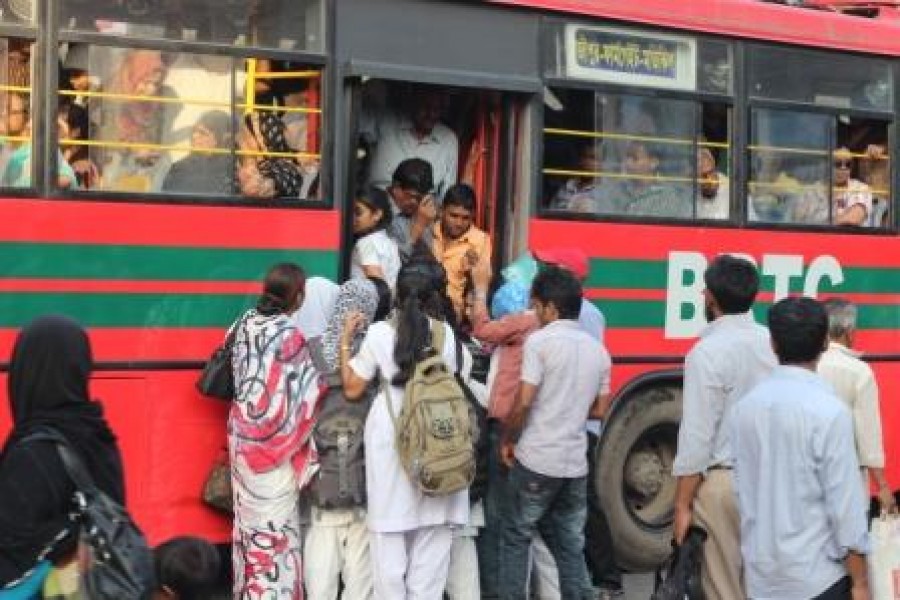A study conducted by BRAC in collaboration with the BRAC University paints a grim picture of harassment women are subjected to in public transports. The very date of its release, two days before the International Women's Day, adds a special dimension to the plight of women using public transports. Sexual harassment of women has sparked debates, discourses, leading to recommendations for remedial measures. But victimisation of women in public transports in all places of the country ranging from cities, small towns to rural areas continues, the study has observed.
Despite a heightening activism prompted by international women's movements, sexual harassment keeps plaguing societies. Today no country is fully free of this despicable act of male oppression. It remains mostly insidious and on occasions emerges in its hideous form. Sexual harassment in Bangladesh public transports greatly hinders women's free movement, thus their progress. Its high incidence has deleterious effects on women's attempts to become self-reliant. It also stands in the way of their empowerment. Lack of preventive measures and absence of moral deterrents add to its fast deterioration.
Titled 'Safe Road for Women: Reducing Sexual Harassment and Road Crash in Bangladesh', the research-based survey presents some stunning information. A large section of women have confided that men aged between 41 and 60 usually commit this crime. However, the relatively younger male youths are viewed as being more dreadful. The survey offered a detailed picture of the present situation of women's sexual harassment in Dhaka and other places. The bitter experiences narrated by the respondents present an old hazard facing women commuters. But what trouble them are the unabated rise in the occurrences of the incidents, and also the changes in the nature of the menace. A depressing information coming from the harassed women shows 81 per cent of them suffer the ordeal silently and 21 per cent have reduced the use of public transports.
Working women in the country are generally found in an insecure environment. While commuting, they have to make way through crowds of male passengers. Few facilitate women in boarding a bus and taking a seat. On occasions the situation appears tolerably congenial, but during rush hours many young women passengers are made to remain standing. The ordeal of being squeezed between males, and deliberately pushed and brushed by many of them is a normal scene these days. The dimly lit bus interiors after dusk also add to the female passengers' vulnerability. Working women in Bangladesh are found being pushed into scores of adversities. Sexual harassment in public transports, crowded areas and at workplaces stands out among them as a terrible impediment to advancement. It is high time the authorities concerned acted to rein in the hideous male behaviour. Stricter law enforcement and surveillance may not be enough. There is need for bringing about a change in the male attitude towards women -- one that is based on mutual respect, understanding and cooperation so essential for building a modern and progressive society.


